By Nicoletta Kouroushi and Stelios Marathovouniotis.
In the past five years, the European Parliament has been at the forefront of addressing some of Europe’s most pressing challenges, including the COVID-19 pandemic.
During this period, it has been instrumental in enacting a variety of reforms, mechanisms, and measures aimed at enhancing the everyday lives and welfare of the people across Europe.
As the time approaches to elect new representatives, Phileleftheros and in-cyprus talked with the six Cypriot Members of the European Parliament – Loucas Fourlas, Eleni Stavrou, George Georgiou, Niyazi Kızılyürek, Costas Mavrides, and Demetris Papadakis – to reflect on the accomplishments of the European Parliament’s recent term.
The consensus among the Cypriot MEPs was that the Parliament played a crucial role in managing the pandemic by endorsing the Recovery and Resilience Mechanism and contributing to the formation of the NextGenerationEU financial plan.
Furthermore, they highlighted key achievements such as the advancement of the Green and Digital Transitions, and the implementation of measures directly affecting the health, welfare, and daily experiences of EU citizens, including the establishment of a European framework for a minimum wage, the EU Beating Cancer Plan, and the initiative to eliminate excessive baggage charges.
They also discussed the Parliament’s efforts in supporting young people through the regulation of internships and promoting equality and human rights with initiatives like the European Year of Skills and the ongoing campaign to protect the rights of individuals with disabilities.


The detailed insights from the Cypriot MEPs are as follows:
Loucas Fourlas: Through the European Year of Skills no one will be left behind in a rapidly changing work environment
- Sanctions against Russia
- Pandemic Response
- Europe’s Beating Cancer Plan
- Erasmus Plus
- European Year of Skills
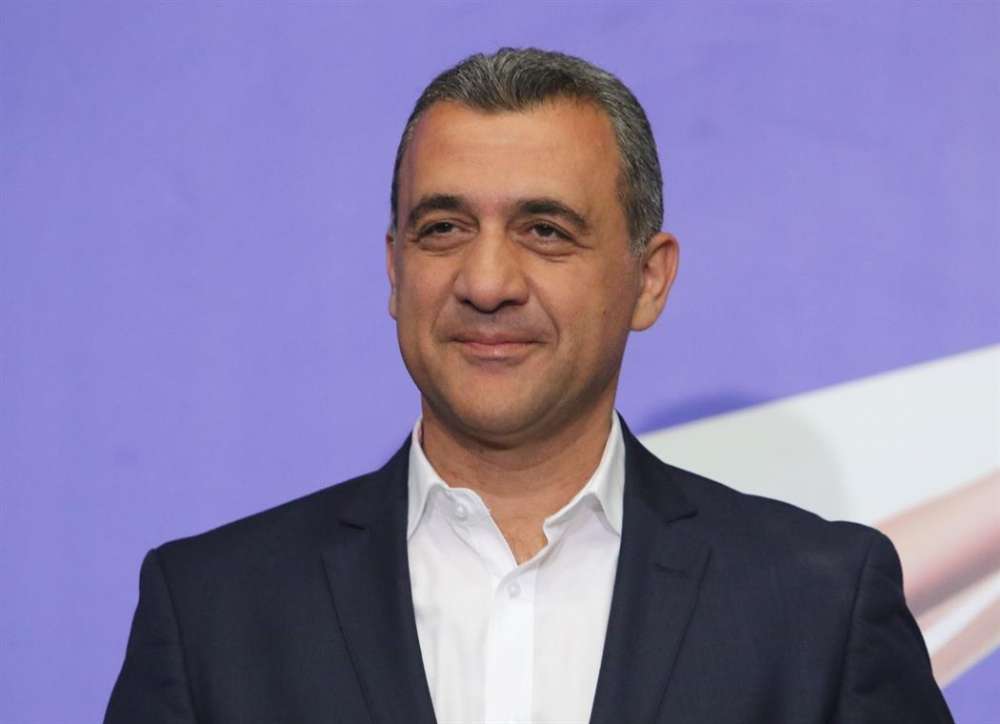
The five-year term that is coming to an end has been challenging and eventful. There is a tendency to highlight the shortcomings and weaknesses of the EU, but there are also many achievements to be proud of. The unprovoked attack by Russia on Ukraine found us all united. We unanimously imposed sanctions on Moscow, and rightly so. However, I have repeatedly pointed out that we do not see the same stance taken against Ankara, which has been occupying half of Cyprus for fifty years. Nor has similar action been taken regarding Baku’s attack on Armenia.
On a positive note, we effectively tackled the pandemic. Despite initial hesitation, the EU funded the effort with billions of euros. The Erasmus+ programme, supporting education, training, youth, and sports in Europe, is another significant achievement. As the Shadow Rapporteur for the Opinion on the Revision of the 2021-2027 Multiannual Financial Framework in the Education Committee, we proposed the smooth continuation of this programme. Its budget amounts to €26.2 billion, almost double the funding of the previous programme (2014-2020).
Another crucial accomplishment was the establishment of the European Parliament Special Committee on Beating Cancer (BECA), of which I was a full member. The central aim was to maximise the involvement of scientists in research and innovation, coordinate their efforts, and provide funding. This concluded a significant cycle of work, resulting in a genuine European Strategy to fight cancer. This was both a European and a personal goal, and I was deeply honoured to be voted MEP of the Year for Health.
Lastly, I must mention the European Year of Skills. As the rapporteur for this significant initiative, which concerns tens of millions of people, we placed Cyprus at the forefront. We put our country in Europe’s leading carriage, that of evolution. My goal was achieved. Without exclusions and in a socially just manner, targeting students, young people, employed individuals, and even retirees, no one will be left behind in a rapidly changing work environment.
Eleni Stavrou: We managed to co-shape the Migration and Asylum Pact
- Shaping the Migration and Asylum Pact
- NextGenerationEU
- Consumer Protection with GDPR and Digital Services Act
- Climate Neutral Economy
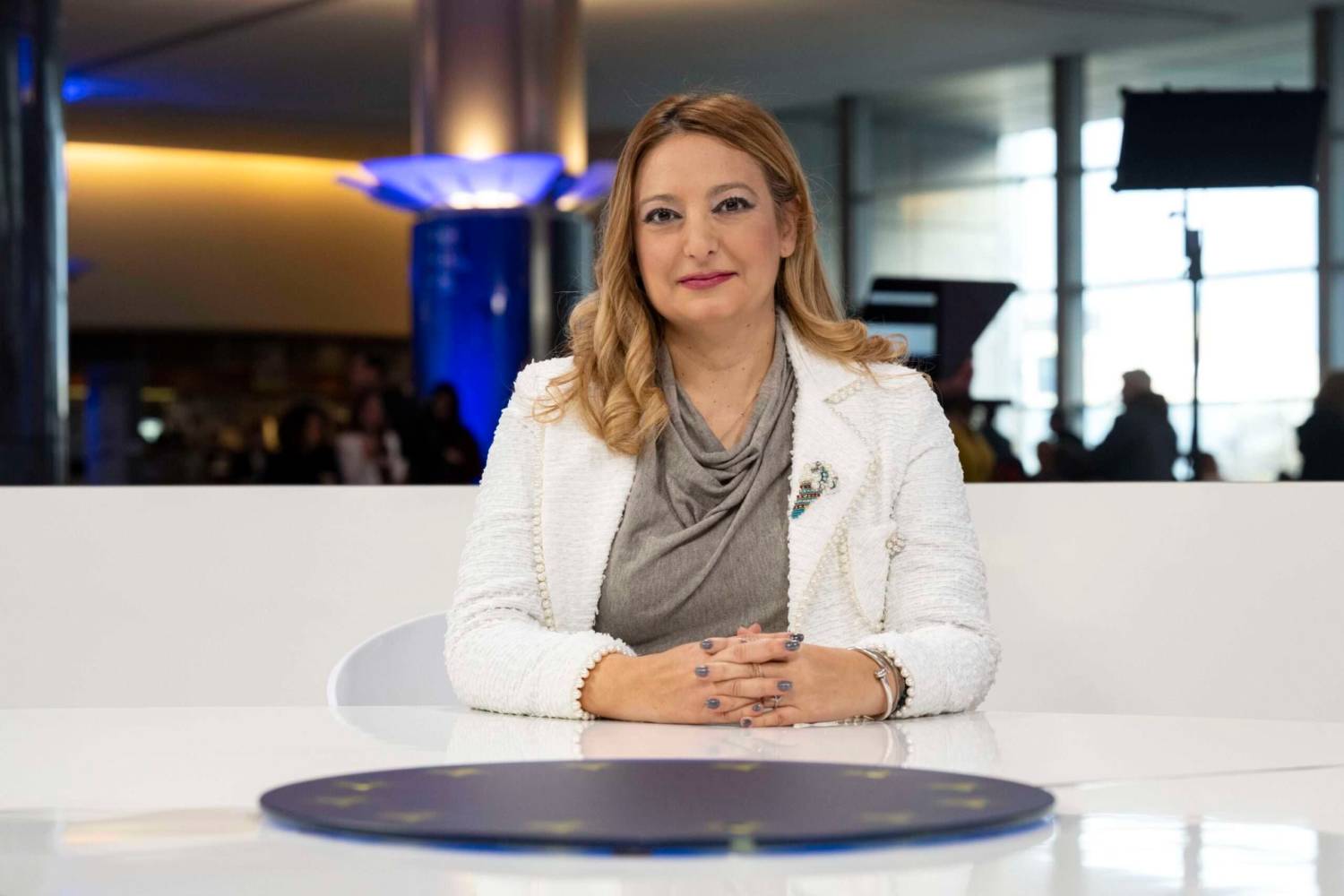
In the last five years, the European Parliament has been faced with unprecedented, as well as repeating, crises, both in Europe and in the World.
One of them has been illegal immigration, where the EP managed to co-shape the new Pact on Migration and Asylum, which links development policy with European funds in third countries, speeds up control and returns procedures, and works with more solidarity towards first-entry countries, such as Cyprus.
Regarding the economy, the European Parliament participated in the unprecedented response of the E.U. and its governments to the COVID-19 pandemic, with the creation of the NextGenerationEU package that was made available to the 27 member states, in the form of grants and loans, for the financial response to the pandemic and the lockdowns. This historic package of measures aims to give new momentum to our economies, through investments in the green transition, digital transformation and social programmes.
The digital transition was another important milestone of the past term. The EP passed laws that govern the work of technology companies, protect internet user privacy, and enable innovation and research into new technologies. Measures and regulations such as GDPR and the Digital Services Act create the framework for transparency and a fairer online environment for the European consumer.
Climate change has certainly been at the centre of the past term and will remain so as it is one of the most critical issues facing humanity. The Green Deal being implemented seeks to make the EU climate-neutral by 2050, while my parliamentary group, the EPP, has fought to ensure that the transition to a climate-neutral economy leaves no consumer, farmer or business behind.
George Georgiou: We have won battles for the benefit of the people
- Resolutions Condemning Turkey’s Illegal Actions
- Increased Funding for Paediatric Cancer
- Consumer Protection Watchdog Report
- Gender Equality, LGBTI Rights, Disability Rights
- Highlighting Violations of European Environmental Legislation
- Strengthening the European Minimum Wage Directive
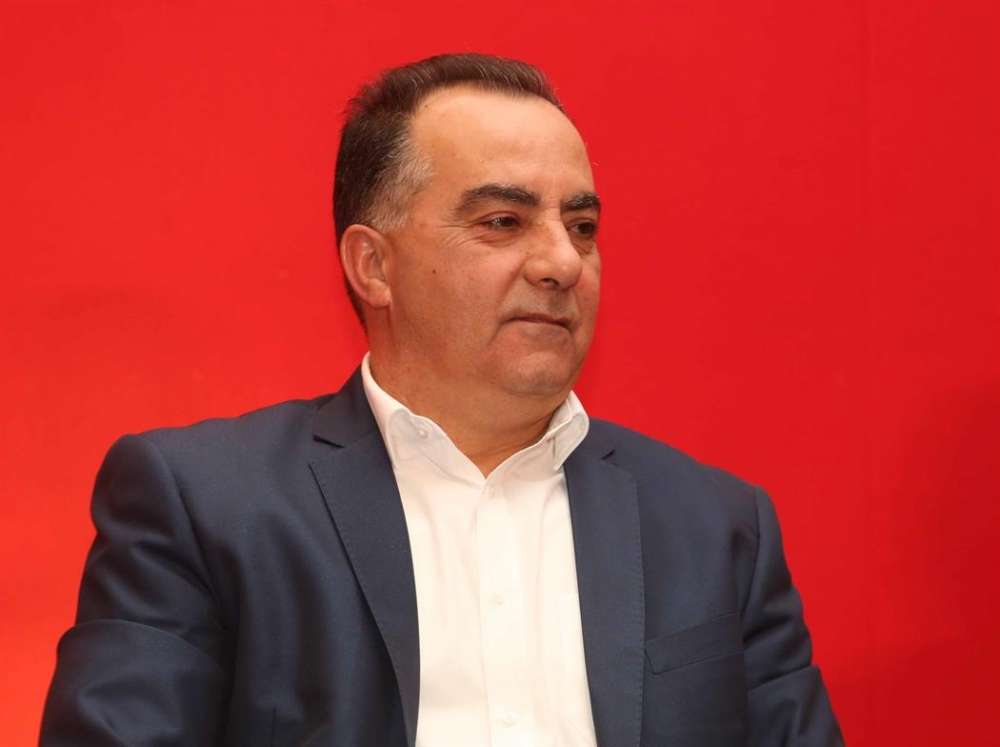
The challenges in the EU are enormous.
Wars, food crisis, 22% poverty, 10.909 million people unemployed, divestments…
It is not easy to talk about achievements.
But the European Parliament is a place of struggle, where we have won small battles for the benefit of the people.
We have adopted resolutions condemning Turkey’s illegal actions. As shadow rapporteur for the progress report on Turkey, together with other MEPs, we have promoted, in particular, the issues of Famagusta, missing persons and refugees.
Upon our initiative, the European Parliament increased the funds for paediatric cancer. We also contributed to the development of an integrated European cancer strategy. We brought surveillance spyware to light and contributed to the adoption of a strong report, with recommendations to protect citizens.
We adopted important reports on gender equality and ensuring LGBTI rights. Despite the opposition from right-wing, conservative and far-right forces, we called on the Commission to include gender-based violence as a crime to be combated.
We have highlighted serious violations of European environmental legislation to put a stop to the destruction of the environment. A typical example is the recent debate in the Committee on Petitions on the Akamas Peninsula, following complaints made by environmental organisations.
The inter-party group on the rights of people with disabilities, in which I have the honour of participating as the vice president, has made a substantial contribution to strengthening the Europe-wide struggle to secure the rights of disabled people.
We strengthened the European minimum wage directive, succeeding in putting pressure on Cyprus to improve working conditions.
And more.
To be honest, of course, we are far from the target… of a Europe without inequalities and exploitation.
But we keep going because the only lost struggles are those that are not given!
Niyazi Kızılyürek: One of the main successes was the adoption of the Recovery and Resilience Facility
- Recovery and Resilience Mechanism
- Adoption of the Green Transition Policy
- Prohibition of Unpaid Internships
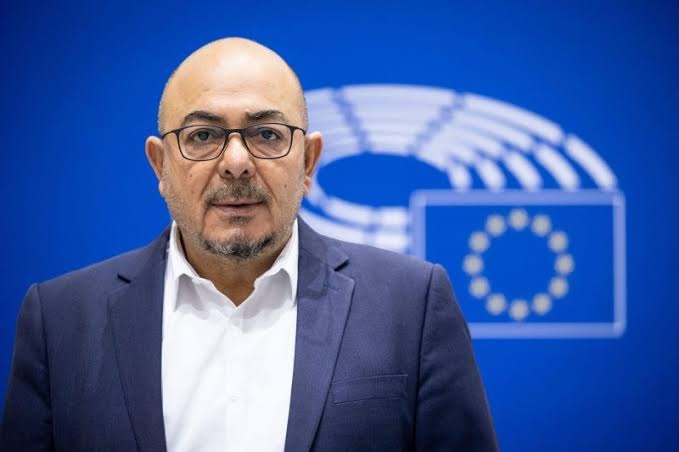
The outgoing parliamentary term of the European Parliament stands out as one of the most challenging in the history of the institution. In its five-year term, it has gone through the coronavirus pandemic, the Russian invasion of Ukraine, the Hamas attack on Israel, and the massacre of tens of thousands of Palestinians by the Israeli army.
Nevertheless, important work has been done by the European Parliament. I believe that one of the main successes was the adoption of the Recovery and Resilience Facility to deal with the consequences of the COVID-19 pandemic. This marked a historic milestone as the EU collectively borrowed and guaranteed funds for its Member States for the first time. Consequently, small and medium-sized enterprises, as well as citizens, received financial support from the Union throughout the pandemic. It’s worth noting that the allocation of these funds was decided through an online voting process.
A further success is – of course – the adoption of the green transition policy. A policy which, unfortunately, is in danger due to the warfare at the EU’s borders and the rise of the far right. In any case, however, for the first time in history, green sustainable development has been placed at the heart of the Union’s policies. I hope that it will continue unhindered in the new parliamentary term of the European Parliament.
Finally, as another achievement, I consider the special emphasis that the European Parliament has placed on youth. Designating 2022 as the European Year of Youth underscores this commitment. A recent significant initiative of the European Parliament involved the adoption of a report addressing the regulation of internships for young individuals. Notably, this report explicitly advocates for the prohibition of unpaid internships, marking a crucial step towards fair opportunities for the youth.
Costas Mavrides: We effectively contributed to the adoption of a Pan-European framework for the minimum wage
- Pandemic Response – Adoption of a Recovery and Resilience Mechanism
- Pan-European Framework for Minimum Wage
- EU Strategic Autonomy
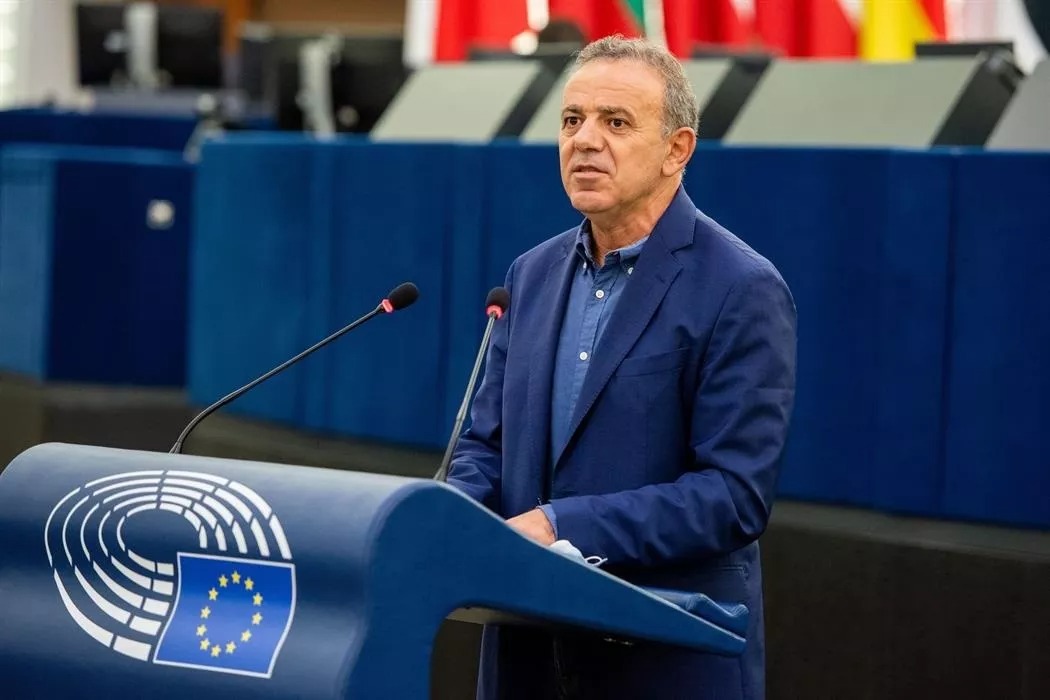
In the current term, both as the European Parliament and consequently as the EU, we have faced serious challenges, such as the pandemic and geopolitical developments with the war in Ukraine, Gaza, and elsewhere. The European Parliament, which is the only EU institution with directly elected members from European citizens, remains the representative of democracy in shaping European legislation on issues affecting citizens’ daily lives and acts as a guarantor of European values.
A significant achievement in this term was the adoption of the largest financial instrument ever in the EU, namely the Recovery and Resilience Mechanism, amounting to approximately 650 billion euros (in the form of grants and/or loans), in response to the pandemic and the need for resilient economies. It should be noted that for the first time, the financing of the above mechanism is done through borrowing by the European Commission with joint debt – something that seemed impossible a few years ago – proving that when there is unity, solidarity, and determination, the impossible becomes possible. Having the honour and responsibility to negotiate on behalf of my political group (S&D), we managed, among other things, to include in this mechanism funding for the social pillar, addressing issues such as housing and education.
The European Parliament, as a defender of social rights, has also effectively contributed to the adoption of a Pan-European framework for minimum wage, with mandatory implementation in all member states. Thus, it ensures that all European citizens will have decent minimum wages throughout the EU. As a political group of the Socialists and Democrats (S&D), we are proud to have pioneered this framework to come true. The adoption of this legislation was particularly beneficial for Cyprus, which had not established a minimum wage for all workers. Around 30,000 workers at the bottom of the salary scale in Cyprus saw an increase in their wages, which otherwise would have not taken place.
Finally, as the European Parliament, we have supported from the beginning and continue to strongly support an EU with strategic autonomy, with its own autonomous role on the international stage, where it will become a catalyst rather than a follower of geopolitical developments. During this term, significant steps have been taken towards this direction, mainly due to the war in Ukraine, such as the adoption of the “Strategic Compass”.
Nevertheless, greater determination and political will from the member states at the European Council level are needed. In an environment of existing threats, from Erdogan’s neo-Ottomanism to the political Islam within the EU, wars, and geopolitical rivalries, strategic autonomy with a fully-fledged European common defence and security, constitutes a necessity. Only then can we hope for a better future with security in the EU, paving the way to achieve our economic, social, and environmental goals.
Demetris Papadakis: I can’t imagine what would have happened during the pandemic if we were outside the EU
- Environment – Nature Restoration Law
- Resolution on charges and baggage dimensions
- Common charger for all electronic devices in Europe
- Pandemic Response
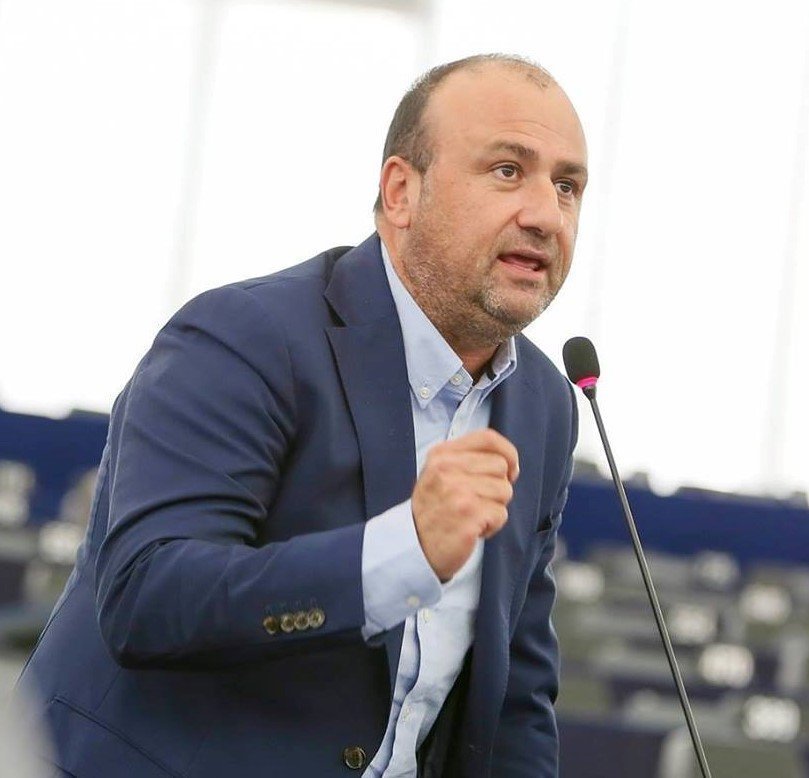
The current term of the European Parliament did not start under the best omens. Just a few months after assuming our duties, the COVID-19 pandemic broke out. Despite the unprecedented situation for all of us, the European Parliament rose to the challenge. Through the Parliamentary Committee on the Environment, Public Health and Food Safety, we had to consent to the implementation of the European Commission’s action plan. I dare say that, despite occasional criticism, I cannot imagine what would have happened during the pandemic if we had not been part of the EU.
The achievements of this term are numerous. Indicatively, I would like to mention the following, which are intrinsically linked to the daily lives of citizens:
- One of the most historic decisions of the European Parliament is the Nature Restoration Law, recognising the importance of ecosystem restoration in combating climate change and reducing the risk of a future food crisis.
- Also very significant is the EP resolution urging the European Commission to put an end to the ‘rip-off’ baggage fees charged by airlines. The resolution also includes mandatory common rules for cabin luggage dimensions on all flights within the European Union.
- Another important decision affecting all EU citizens is the common charger for all electronic devices in Europe. According to the new rules, consumers will no longer need a different charger every time they purchase a new device, as they will be able to use a single charger for a wide range of small and medium-sized portable electronic devices.






